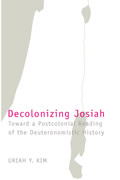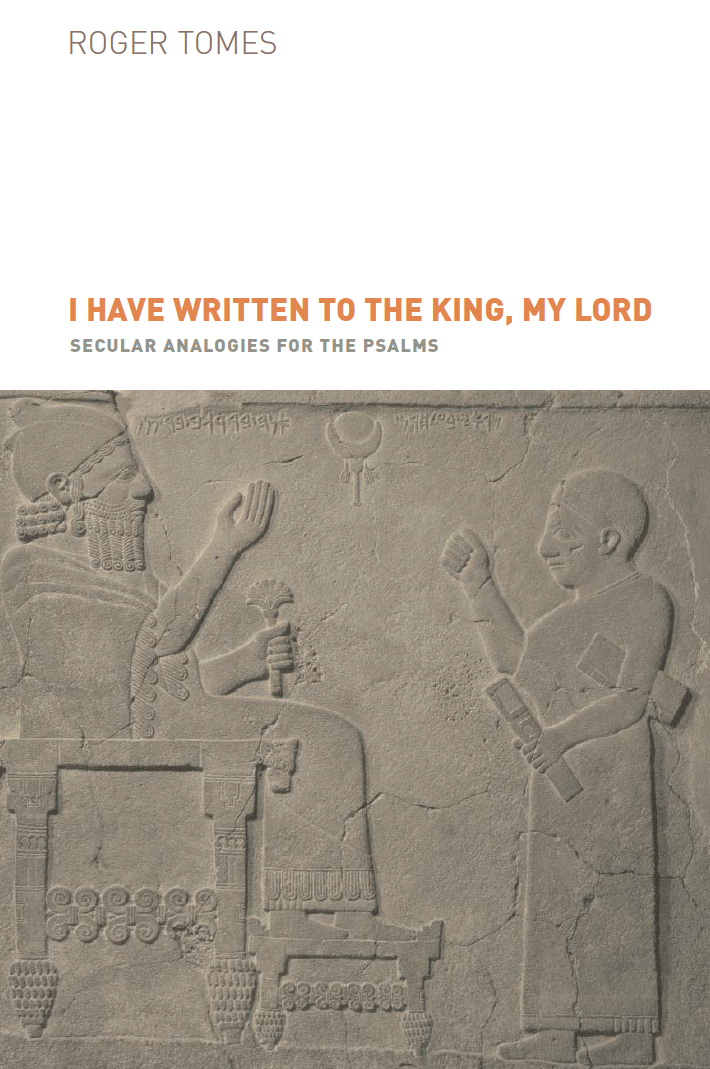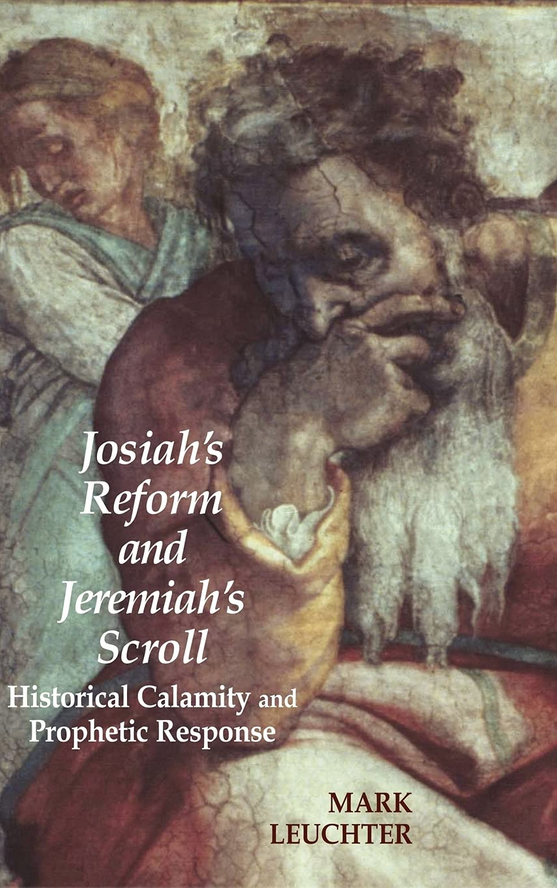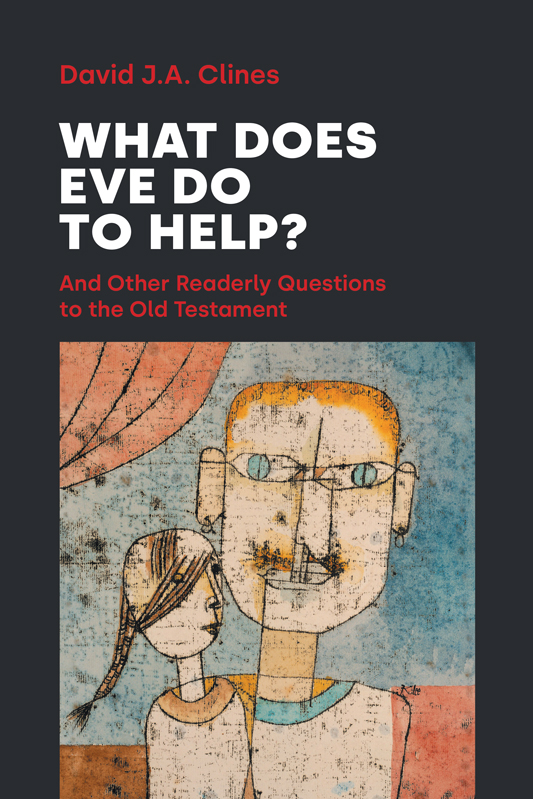Decolonizing Josiah: Toward a Postcolonial Reading of the Deuteronomistic History
Published: Jun 2006
Price range: £18.95 through £50.00
In the prevailing view, the Deuteronomistic History is the first and archetypical Western history, describing the creation of an Israelite state in Palestine as the origin of civilization in the region, a hegemonic culture rendering the other inhabitants of the country homeless in their own land. That view of Davidic domination over greater Palestine, fashioned under Josiah, has been given a modern nationalist reading by contemporary scholars, a reading consistent with the vast array of covert cultural confirmations of Euro-American imperial power.
How is it possible, Kim asks, given the all-encompassing sway of the colonialist reading of the Bible, to understand Josiah in other than colonialist terms? His answer: the historical imagination, making unfettered use of the tools of the critical historian, must be informed by the experience of those who have lived as the other, as the colonized, as not at home in their own land —which means, for Kim, the experience of being Asian American. The intellectual use of this experience creates his distinctive postcolonial perspective, as he draws attention to the connection between Western imperialism and the production of Western knowledge. Specifically, the author reads the story of Josiah intercontextually with the experience of Asian Americans from the space of liminality.
This is a passionate postcolonial reading of Josiah that, on one hand, critiques the failure of biblical studies to come to terms with its colonialist legacy and, on the other hand, connects the world of biblical studies to the world at large.
Decolonizing Josiah: Toward a Postcolonial Reading of the Deuteronomistic History
Price range: £18.95 through £50.00
In the prevailing view, the Deuteronomistic History is the first and archetypical Western history, describing the creation of an Israelite state in Palestine as the origin of civilization in the region, a hegemonic culture rendering the other inhabitants of the country homeless in their own land. That view of Davidic domination over greater Palestine, fashioned under Josiah, has been given a modern nationalist reading by contemporary scholars, a reading consistent with the vast array of covert cultural confirmations of Euro-American imperial power.
How is it possible, Kim asks, given the all-encompassing sway of the colonialist reading of the Bible, to understand Josiah in other than colonialist terms? His answer: the historical imagination, making unfettered use of the tools of the critical historian, must be informed by the experience of those who have lived as the other, as the colonized, as not at home in their own land —which means, for Kim, the experience of being Asian American. The intellectual use of this experience creates his distinctive postcolonial perspective, as he draws attention to the connection between Western imperialism and the production of Western knowledge. Specifically, the author reads the story of Josiah intercontextually with the experience of Asian Americans from the space of liminality.
This is a passionate postcolonial reading of Josiah that, on one hand, critiques the failure of biblical studies to come to terms with its colonialist legacy and, on the other hand, connects the world of biblical studies to the world at large.
I Have Written to the King, My Lord’: Secular Analogies for the Psalms
Published: Jun 2006
Price range: £12.95 through £35.00
The psalms in the Hebrew Bible have often been compared with the religious texts of Mesopotamia, Egypt and Canaan. Roger Tomes shows, in this incisive monograph, how the letters of the ancient Near East, from Mari, Amarna, Ugarit, Nimrud and Nineveh, are an equally rewarding analogue.
In them we find suppliants, caught in crisis situations, appealing to their rulers; they use the same arguments to persuade them to act as the psalmists in their appeals to God: protestations of innocence, confession of faults, promises of loyalty, descriptions of plight, appeal to the other's own interests, direct reproaches and quotation of the reproaches of enemies, and expressions of dependence. These are parallels that have much to teach us about the social position of the psalmists and their relationship to the cult.
I Have Written to the King, My Lord’: Secular Analogies for the Psalms
Price range: £12.95 through £35.00
The psalms in the Hebrew Bible have often been compared with the religious texts of Mesopotamia, Egypt and Canaan. Roger Tomes shows, in this incisive monograph, how the letters of the ancient Near East, from Mari, Amarna, Ugarit, Nimrud and Nineveh, are an equally rewarding analogue.
In them we find suppliants, caught in crisis situations, appealing to their rulers; they use the same arguments to persuade them to act as the psalmists in their appeals to God: protestations of innocence, confession of faults, promises of loyalty, descriptions of plight, appeal to the other's own interests, direct reproaches and quotation of the reproaches of enemies, and expressions of dependence. These are parallels that have much to teach us about the social position of the psalmists and their relationship to the cult.
Reframing Her: Biblical Women in Postcolonial Focus
Published: Jun 2006
Price range: £15.95 through £35.00
How does one read the story of Sarah and Hagar, or Jezebel and Rahab today, if one is a woman reader situated in a postcolonial society?
This is the question undergirding this work, which considers a selection of biblical texts in which women have significant roles. Employing both a gender and a postcolonial lens, it asks sharp questions both of the interests embedded in the texts themselves and of their impact upon contemporary women readers.
Whereas most postcolonial studies have been undertaken from the perspective of the colonized this work reads the texts from the position of a settler descendant, and is an attempt to engage with the disquietening and challenging questions that reading from such a location raises. Letters from early settler women in New Zealand, contemporary fiction, and personal reminiscence become tools for the task, complementing those traditionally employed in critical biblical readings.
Reframing Her: Biblical Women in Postcolonial Focus
Price range: £15.95 through £35.00
How does one read the story of Sarah and Hagar, or Jezebel and Rahab today, if one is a woman reader situated in a postcolonial society?
This is the question undergirding this work, which considers a selection of biblical texts in which women have significant roles. Employing both a gender and a postcolonial lens, it asks sharp questions both of the interests embedded in the texts themselves and of their impact upon contemporary women readers.
Whereas most postcolonial studies have been undertaken from the perspective of the colonized this work reads the texts from the position of a settler descendant, and is an attempt to engage with the disquietening and challenging questions that reading from such a location raises. Letters from early settler women in New Zealand, contemporary fiction, and personal reminiscence become tools for the task, complementing those traditionally employed in critical biblical readings.
Josiah’s Reform and Jeremiah’s Scroll: Historical Calamity and Prophetic Response
Published: Jan 2006
£50.00
This exciting new study of the prophet Jeremiah attributes to him a pivotal significance in the historical period of Josiah's reign.
He was, so Leuchter argues, one of the central agents of Josiah's propaganda machine and was intimately involved with the king's political agenda. Jeremiah, himself originally a member of the scribal school that composed the Deuteronomistic literature, encouraged the Shilonites of Anathoth to become active in Josiah's programme in the North following the waning of Assyrian power. Dismayed by the Shilonites' rejection of him and Josiah, and by the king's death at Megiddo, Jeremiah came to a radically new understanding of the divine purpose, encapsulated in the famous Temple sermon of Jeremiah 7 and evidenced in the prophet's debates with the political establishment in Jerusalem in the years that followed.
In his thoroughgoing historical reconstruction, Leuchter outlines a very specific sequence of events that took their rise from the Shilonite rejection of Deuteronomic policy, and on that basis carefully demarcates the texts that would have been included in Jeremiah's first scroll (the Urrolle ). Leuchter's monograph will make an important contribution to the study of the history and the literature of the late seventh century BCE.
Josiah’s Reform and Jeremiah’s Scroll: Historical Calamity and Prophetic Response
£50.00
This exciting new study of the prophet Jeremiah attributes to him a pivotal significance in the historical period of Josiah's reign.
He was, so Leuchter argues, one of the central agents of Josiah's propaganda machine and was intimately involved with the king's political agenda. Jeremiah, himself originally a member of the scribal school that composed the Deuteronomistic literature, encouraged the Shilonites of Anathoth to become active in Josiah's programme in the North following the waning of Assyrian power. Dismayed by the Shilonites' rejection of him and Josiah, and by the king's death at Megiddo, Jeremiah came to a radically new understanding of the divine purpose, encapsulated in the famous Temple sermon of Jeremiah 7 and evidenced in the prophet's debates with the political establishment in Jerusalem in the years that followed.
In his thoroughgoing historical reconstruction, Leuchter outlines a very specific sequence of events that took their rise from the Shilonite rejection of Deuteronomic policy, and on that basis carefully demarcates the texts that would have been included in Jeremiah's first scroll (the Urrolle ). Leuchter's monograph will make an important contribution to the study of the history and the literature of the late seventh century BCE.
The Older Testament: The Survival of Themes from the Ancient Royal Cult in Sectarian Judaism and Early Christianity
Published: July 2005
£35.00
The Older Testament is a radically new approach to many problems of both Old and New Testaments. It takes as a basis the theology of the book of Enoch, lost to western Christendom for many centuries, but here recognized as providing the most consistent set of clues to the nature of Israel's pre-exilic religion. Reformers and editors of the Second Temple period sought to remove from the biblical texts all traces of the older ways, which now survive only in the apparently bizarre themes and imagery of certain Pseudepigrapha.
Margaret Barker traces some of the ways in which the Deuteronomic standpoint came to dominate future readings of the Hebrew Bible as well as scholarly conceptions of Israel's religious development. Her reconstruction of the pre-Deuteronomic religion throws a startling light on much of the imagery of the New Testament and shows how closely the earlier Christian expectations were based upon the ancient royal cult in Jerusalem.
This book represents an important and original contribution to our understanding of Judaism and early Christianity.
The Older Testament: The Survival of Themes from the Ancient Royal Cult in Sectarian Judaism and Early Christianity
£35.00
The Older Testament is a radically new approach to many problems of both Old and New Testaments. It takes as a basis the theology of the book of Enoch, lost to western Christendom for many centuries, but here recognized as providing the most consistent set of clues to the nature of Israel's pre-exilic religion. Reformers and editors of the Second Temple period sought to remove from the biblical texts all traces of the older ways, which now survive only in the apparently bizarre themes and imagery of certain Pseudepigrapha.
Margaret Barker traces some of the ways in which the Deuteronomic standpoint came to dominate future readings of the Hebrew Bible as well as scholarly conceptions of Israel's religious development. Her reconstruction of the pre-Deuteronomic religion throws a startling light on much of the imagery of the New Testament and shows how closely the earlier Christian expectations were based upon the ancient royal cult in Jerusalem.
This book represents an important and original contribution to our understanding of Judaism and early Christianity.
What Does Eve Do to Help? And Other Readerly Questions to the Old Testament
£50.00
Readerly questions are raised when readers are explicitly and programmatically brought into the process of interpreting texts. Traditionally, the reader and readerly interest and identities have been screened out when we have set about interpreting texts, and we have set our sights on attaining an interpretation that should be as objective as possible.
Things are rather different now. Not only is quest for objective interpretation seen as chimaera, but the rewards of unabashed readerly interpretations that foreground the process of reading and the context of the reader have now been shown to be very well worth seeking. That reader-response approach characterizes this collection of six essays, prefaced by an introduction to reader-response criticism.
The essays for the most part read in their original form to meetings of the Society of Biblical Literature, are: What Does Eve Do To Help? and other Irredeemably Androcentric Orientations in Genesis 1-3; What Happens in Genesis; The Ancestor in Danger: But Not the Same Danger; The Old Testament Histories: A Reader's Guide; Deconstructing the Book of Job; and Nehemiah Memoir: The perils of Autobiography.
This volume is a reprint of the original 1990 edition.
What Does Eve Do to Help? And Other Readerly Questions to the Old Testament
£50.00
Readerly questions are raised when readers are explicitly and programmatically brought into the process of interpreting texts. Traditionally, the reader and readerly interest and identities have been screened out when we have set about interpreting texts, and we have set our sights on attaining an interpretation that should be as objective as possible.
Things are rather different now. Not only is quest for objective interpretation seen as chimaera, but the rewards of unabashed readerly interpretations that foreground the process of reading and the context of the reader have now been shown to be very well worth seeking. That reader-response approach characterizes this collection of six essays, prefaced by an introduction to reader-response criticism.
The essays for the most part read in their original form to meetings of the Society of Biblical Literature, are: What Does Eve Do To Help? and other Irredeemably Androcentric Orientations in Genesis 1-3; What Happens in Genesis; The Ancestor in Danger: But Not the Same Danger; The Old Testament Histories: A Reader's Guide; Deconstructing the Book of Job; and Nehemiah Memoir: The perils of Autobiography.
This volume is a reprint of the original 1990 edition.







1 Chronicles, Second Edition
1 Chronicles, Second Edition